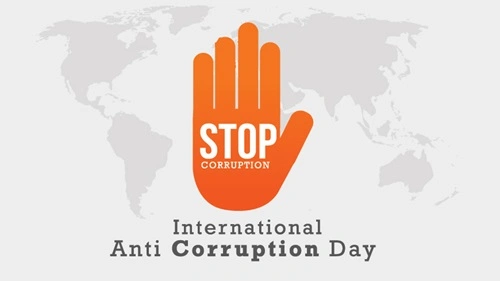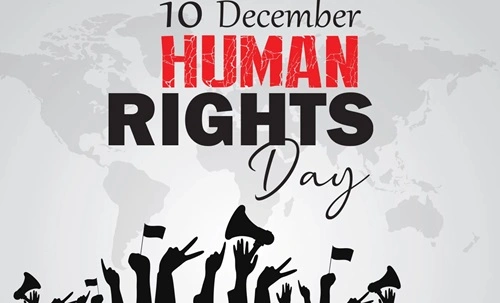International Anti-Corruption Day, observed annually on December 9, is a United Nations-designated day aimed at raising awareness about corruption and its devastating effects on society, governance, and economies. This day also emphasizes the importance of taking collective action to combat corruption, promote transparency, and uphold integrity.
Corruption undermines development, weakens institutions, and erodes trust in governance. The observance calls for a united effort from individuals, governments, businesses, and civil society to eliminate corruption and foster a culture of accountability.
History and Origins

The International Anti-Corruption Day was established in 2003 following the adoption of the United Nations Convention against Corruption (UNCAC). This landmark treaty was signed on December 9, 2003, in Mérida, Mexico, and it remains the most comprehensive and universally accepted instrument in combating corruption.
The United Nations General Assembly declared December 9 as International Anti-Corruption Day to commemorate the adoption of UNCAC and to highlight the need for robust anti-corruption measures worldwide.
What is Corruption?
Corruption involves the abuse of power or position for personal gain. It manifests in various forms, including:
- Bribery: Offering or receiving something of value to influence a decision.
- Embezzlement: Misappropriation of public funds for personal use.
- Fraud: Deception for financial or personal benefit.
- Nepotism: Favoring relatives or friends in employment or other opportunities.
- Extortion: Forcing someone to pay or provide something through threats.
Corruption disproportionately affects the most vulnerable members of society, exacerbates inequality, and hinders sustainable development.
Significance of International Anti-Corruption Day
Corruption poses a significant threat to achieving the United Nations Sustainable Development Goals (SDGs), particularly SDG 16, which focuses on promoting peace, justice, and strong institutions. The day highlights the need to:
- Strengthen Institutions: Ensure public institutions are transparent, accountable, and resilient to corruption.
- Protect Resources: Prevent the mismanagement of funds intended for essential services like healthcare, education, and infrastructure.
- Foster Economic Growth: Create fair business environments by eliminating corrupt practices.
- Empower Citizens: Encourage individuals to speak out against corruption and hold leaders accountable.
Themes of International Anti-Corruption Day
Each year, International Anti-Corruption Day adopts a specific theme to focus on key aspects of combating corruption. For instance:
- 2023 Theme: “United Against Corruption for Development, Peace, and Security” – emphasizing the role of anti-corruption efforts in building a sustainable and equitable future.
- 2022 Theme: “Your Right, Your Role: Say No to Corruption” – highlighting the importance of citizen participation in fighting corruption.
These themes drive global campaigns, events, and discussions aimed at fostering collaboration among stakeholders.
The Impact of Corruption
Corruption has far-reaching consequences for individuals, communities, and nations. Key impacts include:
1. Economic Consequences
- Loss of Resources: Corruption diverts public funds away from essential services, impacting infrastructure, healthcare, and education.
- Reduced Investments: It discourages foreign and domestic investment, stifling economic growth.
- Increased Inequality: Resources are often concentrated in the hands of a few, widening the gap between rich and poor.
2. Social Consequences
- Erosion of Trust: Corruption undermines public confidence in governments and institutions.
- Weakening Rule of Law: It enables impunity, creating an environment where laws are ignored or selectively applied.
- Perpetuating Poverty: Corruption disproportionately affects marginalized communities, limiting their access to opportunities and resources.
3. Political Consequences
- Destabilizing Governance: Corruption weakens political systems, fostering instability and conflict.
- Undermining Democracy: It skews decision-making processes and allows special interests to dominate policymaking.
Global Efforts to Combat Corruption
Several international initiatives and frameworks have been established to address corruption and promote good governance:
1. United Nations Convention against Corruption (UNCAC)
The UNCAC is the most comprehensive global framework for preventing and combating corruption. It emphasizes:
- Prevention of corruption.
- Criminalization of corrupt practices.
- International cooperation in recovering stolen assets.
2. Transparency International
This global organization works to expose corruption and promote transparency through tools like the Corruption Perceptions Index (CPI), which ranks countries based on perceived corruption levels.
3. Open Government Partnership (OGP)
OGP encourages governments to adopt transparent practices and engage with citizens in decision-making processes.
4. Anti-Money Laundering (AML) Initiatives
Efforts to combat money laundering ensure that corrupt individuals cannot hide their illicit wealth.
How International Anti-Corruption Day is Observed
International Anti-Corruption Day is marked by activities and events worldwide, including:
- Educational Campaigns: Workshops, seminars, and discussions raise awareness about the dangers of corruption and ways to combat it.
- Public Dialogues: Governments and organizations host forums to discuss policies and strategies for improving transparency and accountability.
- Media Campaigns: Advocacy groups use social media and traditional media to share messages and success stories in the fight against corruption.
- Policy Announcements: Governments often introduce or reaffirm anti-corruption measures on this day.
How You Can Contribute
Individuals can play a crucial role in combating corruption by:
- Raising Awareness: Share information about the impact of corruption and the importance of transparency.
- Supporting Transparency: Advocate for open government initiatives and access to information laws.
- Reporting Corruption: Use whistleblowing mechanisms to report corrupt activities.
- Practicing Integrity: Uphold ethical behavior in personal and professional dealings.
Looking Ahead: A Corruption-Free Future
Fighting corruption requires collective action at every level of society. Governments must adopt robust policies and enforce anti-corruption laws, while businesses and individuals must prioritize ethical practices. Education, technology, and international cooperation are critical tools in creating systems that resist corruption and promote accountability.
Conclusion
The International Anti-Corruption Day serves as a reminder that corruption is not an inevitable part of governance—it is a challenge that can be overcome through collective effort and commitment. By raising awareness, promoting accountability, and fostering a culture of integrity, we can build a world where corruption has no place. Let this day inspire us to take action, hold leaders accountable, and contribute to a fairer, more transparent society for all.

